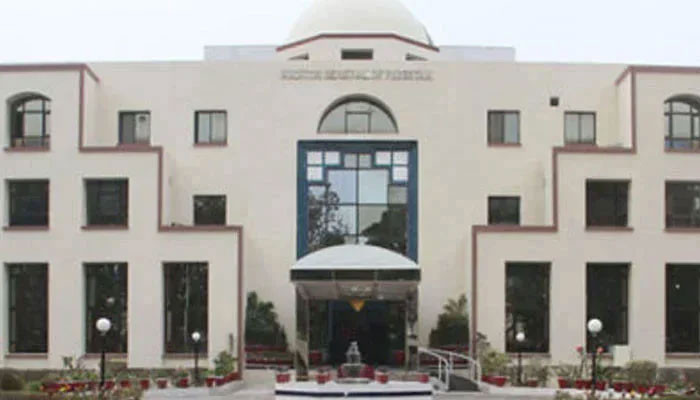Constitutional Clash: The Audit of the Auditor General
A constitutional dispute has emerged in Islamabad, centered on the question of who has the authority to audit the Auditor General of Pakistan (AGP). The Ministry of Finance has sought to scrutinize the AGP, the nation’s supreme audit authority, leading to a standoff over constitutional autonomy.
The Core of the Dispute
The disagreement stems from the AGP’s assertion of its constitutional independence and the Finance Ministry’s endeavor to employ Section 19A of the Auditor General’s Ordinance, which was incorporated through the Finance Act 2015, to conduct an external review of the AGP’s approved expenditures.
The AGP’s refusal to comply initiated a legal challenge. The Islamabad High Court (IHC) sided with the AGP, but the Finance Ministry appealed. The court then ruled the Finance Act amendment unconstitutional, affirming that the AGP is accountable solely to the President of Pakistan, not any executive branch.
According to a spokesman for the AGP office, the Ministry of Finance, being an executive entity, lacks the jurisdiction to audit a constitutional office responsible for auditing the government itself.
The AGP is responsible for auditing all federal and provincial government departments, public corporations, and autonomous bodies. The office maintains that it is only answerable to the President and cannot be audited by any executive agency.
While the AGP conducts internal audits of its sub-offices and headquarters, it adheres to a globally recognized practice of peer reviews for external validation, involving evaluations by fellow supreme audit institutions.
Last year, under the guidance of then-president Dr. Arif Alvi, the audit authority of Saudi Arabia conducted a peer review. The spokesman clarified that these reviews assess professional standards, not financial transactions, and are carried out by institutions of comparable standing from countries like Saudi Arabia, Turkey, Iran, and Azerbaijan.
Finance Ministry’s Perspective
Finance Ministry sources contend that Section 19A of the Auditor General’s Ordinance 2001, as amended by the Finance Act 2015, provides the legal basis for auditing the AGP’s expenditure sanctions.
The section stipulates that the President may designate an independent officer to audit these expenditure sanctions. The Auditor General is required to provide all relevant documents and information for the audit.
In 2020, the President appointed an Additional Secretary of the Finance Division to audit the Auditor General per this provision.
Sources within the Finance Ministry also stated that the Public Accounts Committee (PAC) of the National Assembly Secretariat instructed the Finance Division to proceed with the AGP Department’s audit promptly.
The Auditor General, however, declined to provide documents to the appointed officer, raising objections, including the unprecedented nature of an external audit of the AGP, arguing that the AGP does not fall under the definition of the federal government, and that the audit scope is limited to expenditure sanctions only.
Government sources indicated that the Finance Division addressed the AGP’s concerns by referencing relevant constitutional and legal provisions, as well as historical context.
Subsequently, two officers from the Auditor General’s office filed a writ petition in the Islamabad High Court, contesting the Finance Division’s authority to audit sanctions issued by the Auditor General.
On February 10, 2025, the Islamabad High Court ruled in favor of the petitioners. The Finance Division has since lodged an intra-court appeal (ICA) against this decision, which is currently under consideration by the IHC.



Comments (0)
No comments yet. Be the first to comment!
Leave a Comment